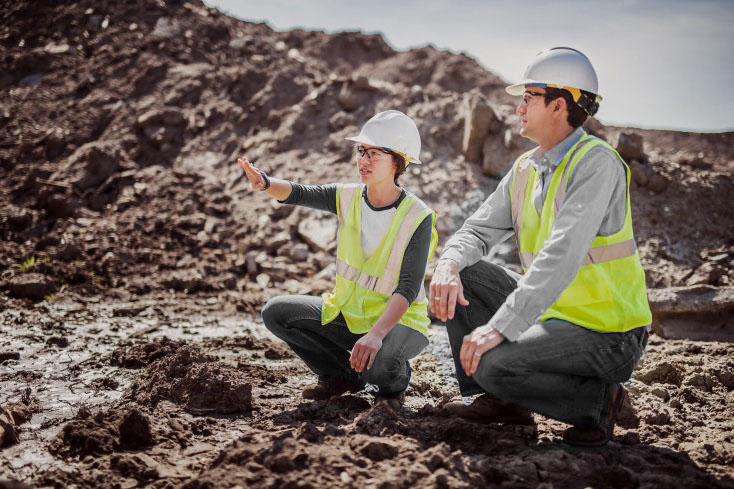Environmental consulting is often a form of compliance consulting, in which the consultant ensures that the client maintains an appropriate measure of compliance with environmental regulations. There are many types of environmental consultants, but the two main groups are those who enter the field from the industry side, and those who enter the field from the environmentalist side. There are numerous areas in which environmental consultants might work (in no particular order):
Contaminated Land is one area as mentioned above.Contaminated Land this may well involve a Phase 1 Environmental Site Assessment
Energy may entail feasibility studies for renewable energy projects. For example, a study may attempt to answer the question: Would a micro-hydro-generation scheme pay for itself over the course of its operational life?
Geotechnical may also be covered by Environmental Consultants, this might include activities such as site investigations, geotechnical engineering (foundation design, slope stability), and restoration quality assurance.
Environmental Management Systems such as ISO 14001 are large complicated systems that are often not implemented using internal man/woman power. This work is usually outsourced to consultants.
Green Claims Environmental Consultants may be employed to substantiate green claims, such as eco labels, which may involve work on supply chain or embodied carbon.
Compliance As governments become more and more environmental in their thinking, so does their legal framework. In the UK businesses are covered by numerous pieces of legislation such as oil storage regulations and The Environment Act. If they are found to be in breach of these regulations they may face severe civil or criminal actions. Environmental Consultants can check to see that the business in question is in compliance with current legislation.
Impact Assessment see Environmental impact statement
Flood Risk, the most common of which may be a Phase 1 Screening Study.
Asbestos Management
Carbon there are various aspects of a company’s carbon foot print that may be managed by consultants. They may have internal reduction strategies, or they may be tied in with national targets. Emissions trading is also an important aspect of Carbon Management.
Typical work activities
As there is such a variety in the type of work that an environmental consultant may undertake on a day-to-day basis there is clearly a wide range of typical activities. A key task is to identify whether land, air or water is contaminated by means of desk-based research and field work, and then undertake an assessment to identify if that contaminant source can have an adverse impact on a receptor (such as humans or groundwater, for example).
Typical activities include:
- managing legislative issues for clients and maintaining an awareness of how legislation impacts projects;
- conducting field surveys: collecting data to establish a baseline condition for levels of pollution or contamination for a site or area of consideration;
- interpreting data: this can include detailed assessment of data, often using software-modelling packages to identify whether ‘contamination’ exists in accordance with current legislation;
- development of conceptual models: this involves identification and consideration of the potential contaminant sources, critical pathways and receptors that could potentially have an adverse impact on the immediate and wider environment;
- report writing: completion of detailed scientific reporting, written in a manner that can be understood by non-technical people;
- communicating with clients, regulators and sub-contractors e.g. analytical laboratories;
- researching previous investigations of a site to provide information to clients considering purchase; and
- possibly undertaking field work to identify previous activities on the site and any contamination.


